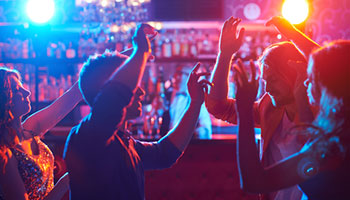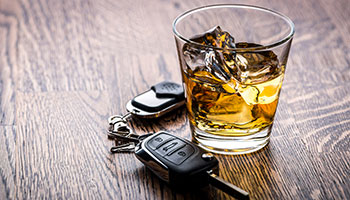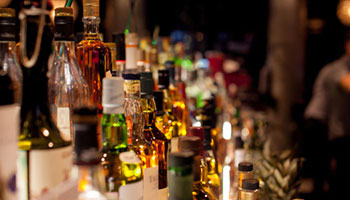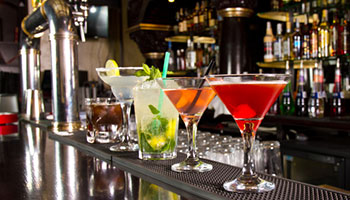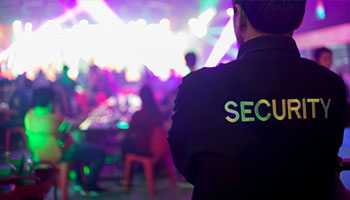Bartender Training
Bartender training should include an understanding of visible and obvious intoxication, as well as local Dram Shop laws and Liquor Liability. Bartenders should be aware of the signs of intoxication and be able to identify when a patron has had too much to drink.
They should be educated about their local Dram Shop laws and understand the legal implications of serving someone visibly intoxicated. Additionally, bartenders should be aware of Liquor Liability and the potential risks of serving someone with too much to drink.
Bartenders should be aware of the signs of intoxication, such as slurred speech, confusion, and lack of mobility. They should take appropriate steps to monitor patrons and ensure they are not over-served. They should also be aware of the possible legal responsibility of serving alcohol to an intoxicated person. Bartenders should also be aware of the dangers of over-serving alcohol and should take appropriate steps to ensure that patrons are not served to the point of intoxication.
this includes checking identification, monitoring consumption, and refusing service to visibly intoxicated patrons. Additionally, bartenders should be aware of the legal consequences of serving someone intoxicated and should be familiar with the local Dram Shop and Liquor Liability laws.
Bartenders should also be familiar with the signs of intoxication and recognize when a patron has had too much to drink. By understanding the legal and safety implications of serving alcohol, bartenders will be better equipped to protect themselves and their customers., as Dram Shop laws may impose civil liability on businesses that serve alcohol to visibly intoxicated individuals, and Liquor Liability may also impose criminal and civil liability for the actions of an intoxicated person.
Bartenders should also be aware of the potential consequences of serving alcohol to intoxicated patrons. This is especially important when it comes to legal liability, as Dram Shop laws may impose civil liability on businesses that serve alcohol to visibly intoxicated individuals. Liquor Liability may also impose criminal and civil liability for the actions of an intoxicated person.
Bartenders should also be aware of local ordinances or regulations that may apply to their establishment, such as the legal drinking age. They should ensure that patrons comply with any applicable laws. Additionally, bartenders should be trained in refusing service to patrons, including developing strategies for de-escalating potential conflicts.

Bartender Training and Visible Intoxication
It is illegal to provide alcohol to someone who appears to be intoxicated. Bartenders don’t need to measure a customer’s blood alcohol content, but they need to recognize visible intoxication. Alcohol intoxication occurs when a person consumes more alcohol than their liver can metabolize. Alcohol accumulates in the bloodstream, increasing blood alcohol content. Intoxication Identification is critical to Dram Shop prosecution. A bartender’s ability to identify signs of visible intoxication and then discontinue alcohol service is responsible for alcohol service.
As bartender training experts, we can assist with information discovery to establish the authenticity of bartender training. Discovery questions are your foundation for establishing facts related to bartender training. Contact The Dram Shop Experts
Bartender Training and Obvious Intoxication
Bartender training is more than pouring drinks and memorizing recipes – it’s about understanding legal and ethical obligations. Obvious intoxication laws significantly burden bars, restaurants, and their bartenders. These laws hold establishments liable for injuries or damages caused by patrons they continued to serve while visibly intoxicated. This means bartenders must know the signs of intoxication and be prepared to act accordingly.
Effective bartender training programs directly address obvious intoxication laws. They teach bartenders to identify obvious signs like slurred speech, impaired coordination, flushed face, and aggressive or argumentative behavior. Bartenders should also be trained to recognize subtler cues, such as a patron ordering excessive amounts of alcohol, buying rounds for obviously intoxicated people, or attempting to conceal their level of inebriation.
Training must go beyond simple recognition. Bartenders need practical strategies for refusing service without provoking confrontation. Role-playing scenarios can help them practice firm but polite phrases and techniques to de-escalate situations. Knowing when to involve management or security is crucial, too.
Establishments must complement bartender knowledge with clear policies regarding intoxication and intervention. These policies should define “obvious intoxication” and outline specific procedures for refusing service and documenting incidents. Regular refresher training reinforces essential concepts and helps bartenders maintain vigilance.
It’s important to remember that the point of “obvious intoxication” laws isn’t to punish bartenders for honest mistakes. The goal is to deter overserving and protect public safety. By understanding the signs of intoxication, knowing how to intervene appropriately, and prioritizing responsible service, bartenders can play a critical role in preventing alcohol-related tragedies.
Bartender Training and Drunk Driving Death
The relationship between bartender training and drunk driving provides empirical evidence for defending or prosecuting ram shop claims. Disproving the validity of bartender training requires comprehensive knowledge of industry-standard procedures. Fortunately for you, the comprehensive knowledge of Dram Shop Experts provides powerful insight into bartender training.
It is unlikely for the bartender to admit they knowingly served a customer demonstrating visible signs of intoxication. Public safety is paramount to all aspects of alcohol service, consumption, intoxication, and drunk driving. When a drunk driver kills himself or someone, Dram Shop Law demands accountability.
Bartender Training and Liquor Liability
Dram shop law litigation revolves around injuries or damage caused by an intoxicated individual. Laws vary depending on where you live and can also reflect any claims of providing alcohol to minors.
Bartender Training and Dram Shop Laws exist to protect the public. These laws hold alcohol service providers liable for damages related to intoxicated or underage alcohol sales. Bartender Training promotes responsible alcohol service through education. Alcohol safety education discourages the sale of alcohol to intoxicated individuals. By discouraging intoxicated alcohol sales, bartender training encourages Dram Shop Law compliance.
Bartender Training is a component of Dram Shop Law. A dram shop law is a civil liability statute dictating dram shop liability for negligent alcohol service. Bartender training mitigates Dram Shop Liability by discouraging negligent alcohol service. Negligent alcohol service occurs when bartenders do not discontinue service despite visible intoxication. Dram Shop liability may hold the bar and its bartenders liable when this happens.
The legal standard in dram shop liability cases may be different. The plaintiff’s burden of proof is usually to show that the establishment was negligent. However, the statute may include relevant information that can help establish negligence.
Bartender Training and Alcohol Service Liability
Bartender training isn’t just about crafting cocktails and protecting lives and livelihoods. Establishments must train their bartenders to recognize intoxication, refuse service responsibly, and understand the severe consequences of overserving. Dram shop laws hold bars, restaurants, and other alcohol-serving businesses liable for injuries or damages caused by patrons they overserve. This places a huge responsibility on bartenders as the front line of defense.
Effective bartender training goes beyond drink recipes. It actively teaches bartenders to spot the physical and behavioral signs of intoxication, such as slurred speech, stumbling, aggression, or glassy eyes. Training programs should instruct bartenders to estimate Blood Alcohol Content (BAC) based on the type and amount of alcohol served, the patron’s size and gender, and the time involved.
Crucially, training must equip alcohol servers with the skills to cut off service. They need clear strategies to refuse alcohol service, de-escalate tense situations, and involve management when necessary. Additionally, alcohol servers must understand the dram shop laws in their state and the potential penalties for both themselves and their employer if they overserve patrons.
Establishments play a key role as well. Clear, written policies on identifying intoxication and refusing service give alcohol servers a framework to follow. Managers must support staff who cut off patrons and consistently enforce responsible service guidelines. Ongoing education and training can help bartenders stay sharp and react appropriately.
Bartenders aren’t just mixing drinks; they’re making choices that could cause injuries, property damage, or even death. Through responsible alcohol service training, bartenders become empowered to protect their customers, employers, and themselves.
Bartender Training and Bartender Liability
Bartending is a great profession, but it comes with serious responsibilities. Serving alcohol requires an awareness of the risks involved, both for the patron and the establishment. Dram shop laws hold bars liable for injuries or damages caused by drunk patrons if they were overserved. This means understanding how to recognize intoxication and then stopping alcohol service is essential.
Bartender training is crucial in preventing customer intoxication and mitigating dram shop liability. Effective training programs should go beyond the basics of mixing drinks. Here are key areas of focus:
- Training should cover the physical and behavioral signs of intoxication
- Bartenders need practical strategies on how to refuse alcohol service
- Bartenders need state-specific dram shop law education
Beyond formal training, establishments must foster a culture of responsible alcohol service. This can include:
- Clear Policies and Procedures: Written guidelines for alcohol service, intoxication identification, and intervention procedures provide a framework for staff.
- Managerial Support: Managers must back up bartenders who refuse service and reinforce company policies.
- Ongoing Training: Regular refresher courses and scenario-based training can help bartenders maintain their skills and adapt to challenging situations.
While establishments bear significant responsibility, alcohol servers also have a personal obligation to serve responsibly. Failure to do so can lead to disciplinary action, fines, or even criminal charges in severe cases. Customer safety is critical, and compliance with dram shop law will mitigate litigation. Remember, responsible alcohol service is not just about avoiding legal trouble but protecting lives.
Why Retain The Dram Shop Experts
Preston Rideout, Kim Schioldan, and Silver Gordon are elite nightclub management, bar operations, and alcohol service experts. Each of us has multiple decades of bartender training experience. We’ve operated over 250 nightclubs, bars, and music festivals in 11 countries. No Dram Shop Expert in the nation has more bartender training experience. than the Dram Shop Experts. Retain us and receive. insight into
Contact The Dram Shop Experts Today
We are the most qualified restaurant, nightclub, and bar operators with the most experience in the legal industry in alcohol service. Contact The Dram Shop Experts to retain our expert witness services. Contact our team today and retain The Dram Shop Experts. We will provide powerful insight into responsible alcohol service, industry-standard bar operations, and intoxication identification. We will fight, by your side, to prosecute or defend your dram shop claim. Call Preston Rideout (662) 466-6045 for information about Dram Shop Expert Witness Testimony services.














